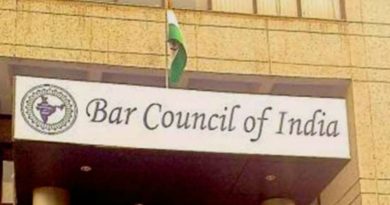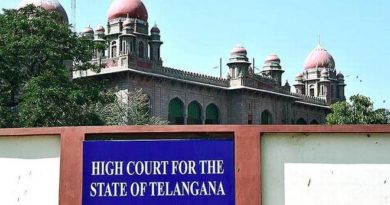SC Declines Disability Quota in UP Bar Council, Urges BCI to Weigh Inclusion
(Judicial Quest News Network)
New Delhi, November 3: In a significant development concerning inclusivity within the legal fraternity, the Supreme Court of India has declined to issue directions for reserving posts for specially-abled advocates in the Uttar Pradesh Bar Council. However, the Court expressed deep admiration for the courage and commitment of differently-abled lawyers who continue to champion the rights of others despite personal challenges.
“The petitioner submits that despite clear statutory and constitutional provisions ensuring equal opportunity and participation for persons with disabilities in all spheres of public life, the Bar Council of Uttar Pradesh has failed to make any provision for representation or reservation of seats for advocate belonging to the category of person with disability in its electoral process. The absence of such representation amounts to discrimination and exclusion, thereby violating the principles of equality and social justice.”
The matter arose from a Public Interest Litigation (PIL) filed by an advocate seeking, inter alia, a directive to the Bar Council of India (BCI) and the Bar Council of Uttar Pradesh to earmark positions in both the Bar Council and Bar Associations for persons with disabilities. The PIL highlighted the need for structural representation to ensure equitable participation of specially-abled legal professionals in institutional decision-making.
“Although Bar Council elections are open and every advocate is eligible to contest, in practice advocate belonging to the category of person with disability are placed at a disadvantage. They often lack equal opportunity to campaign, travel, and reach out to voters due to mobility or accessibility issues. The absence of support systems and infrastructural barriers effectively prevent them from competing on
an equal footing with others. Therefore, reservation of at least one seat for PWD candidates is not a privilege but a corrective measure to ensure substantive equality and equal participation, in line with the intent of the Rights of Persons with Disabilities Act, 2016 and the constitutional guarantee of equality before law.”
A three-judge bench comprising Justices Surya Kant, Ujjal Bhuyan, and Joymalya Bagchi heard the plea and passed the order. While acknowledging the merit of the petitioner’s cause, the bench noted procedural constraints, particularly the fact that elections to the UP-Bar Council had already been notified. In light of this, the Court expressed its inability to intervene at this juncture.
Nonetheless, the Supreme Court disposed of the petition with a direction to the Bar Council of India to consider the issues raised by the petitioner. The bench left it open to all stakeholders to deliberate and take an appropriate decision in the matter. Importantly, the Court clarified that the petitioner is not precluded from approaching a suitable forum at a later stage should the need arise.
Justice Surya Kant, speaking for the bench, remarked with pride that many specially-abled advocates are actively appearing in courts and fighting for the rights of others, embodying the spirit of constitutional equality and resilience. The Court’s recognition of their efforts adds a moral dimension to the ongoing discourse on representation and accessibility in the legal profession.
It may be recalled that the Supreme Court had earlier issued directions for reservation of seats for women lawyers in Bar Council elections, setting a precedent for inclusive reforms. The present case, though not resulting in immediate relief, underscores the judiciary’s evolving engagement with issues of diversity and representation within professional bodies.
The petitioner was represented by Advocates Asif Iqbal, Iqbal Ahmed, Atul Kumar Srivastava, Annu Priya Nisha Minz, Siddhartha Sinha Sr. Advocates & AOR




